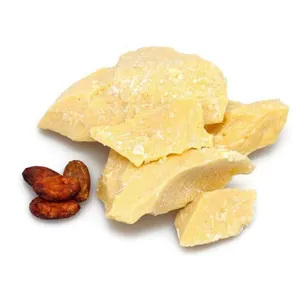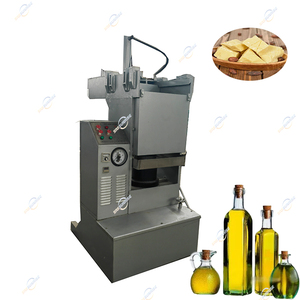(3861 products available)



































































































































































































Different kinds of shea nut oil are available to suit different preferences and purposes. Here are the main types of shea oil to choose from:
Raw shea nut oil
Raw shea nut oil is extracted directly from shea butter using minimal processing to preserve its natural properties. It contains high amounts of vitamins A, E, and F, along with essential fatty acids. This makes raw shea nut oil very nourishing and moisturizing for the skin and hair. It is also said to have anti-inflammatory and antioxidant effects. Because it is not refined, raw shea oil has a stronger scent and a darker yellow color compared to processed versions. However, its potent nutrient profile allows for effective use in treating dry skin, minor burns, eczema, and as a conditioner for softening hair. Its unrefined state enables raw shea oil to deliver the most health benefits from shea's natural compounds.
Refined shea nut oil
Refined shea nut oil undergoes processing to remove impurities and enhance its properties. Common methods include filtering, bleaching, and deodorizating the oil. These processes help refine shea oil to have a lighter color and milder scent compared to raw versions. However, some beneficial nutrients may also be reduced. Despite this, refined shea oil remains high in moisturising fatty acids and has potential antioxidant and anti-inflammatory effects. Its more neutral appearance and odor make refined shea oil suitable for use in cosmetic formulations, creams, lotions, and soaps where a subtle scent is desired. It offers a still-nourishing yet more versatile option for blending into beauty products.
Organic shea nut oil
Organic shea nut oil comes from shea nuts harvested from organically cultivated shea trees. These nuts are processed without any chemicals, pesticides, or synthetic additives, adhering to organic standards. As a result, organic shea oil retains a high concentration of vitamins A, E, and F, along with essential fatty acids. This makes it very nourishing and moisturising for the skin and hair. It also has anti-inflammatory and antioxidant properties. Since it contains no harmful chemicals, organic shea nut oil is ideal for use on sensitive or allergy-prone skin. Its natural purity offers health benefits from shea's nutrient-rich composition. For those preferring chemical-free options, organic shea oil provides a highly wholesome choice for body care.
Wholesale buyers should choose shea oil for sale based on the needs of their target customers. This approach will ensure that they stock shea oils that sell. Here are some vital considerations to keep in mind when choosing shea nut oil.
Type of Shea Oil
There are two main types of shea oil: organic and refined. The organic type is usually extracted from raw shea butter. It has a higher concentration of vitamins and fatty acids. This makes the oil very potent for treating skin and health problems. The organic shea oil is ideal for customers who need a powerful shea oil for their skincare routine. On the other hand, the refined shea oil undergoes processing to remove any impurities. It is more affordable and has a lighter scent. The refined shea oil is suitable for customers who want a budget-friendly option.
Packaging Size
The packaging size of the shea oil is also an important consideration. It comes in different sizes, ranging from small to large containers. The small packs are ideal for customers who want to try out the oil before buying a larger quantity. The large containers are suitable for those who have a large clientele that uses the oil for commercial purposes. Choose different sizes to meet the varying needs of customers.
Brand and Reputation
Consider the brand and reputation of the shea oil manufacturer. Choose brands that are known for producing high-quality shea oils. The reputation of the manufacturer is also crucial. Choose those with a history of producing high-quality shea oils. Wholesale buyers want to build a long-term relationship with the manufacturer. Therefore, choosing those with a good reputation is vital.
Certifications
It is essential to ensure that the shea oils are certified by the relevant authorities. The certifications show that the oil meets the required standards. It is also an assurance that the oil is safe for use. Good certifications can increase the credibility of the shea oils. Wholesale buyers should not ignore the certifications when choosing shea oils.
Shea nut oil is a versatile oil that can be used in a variety of ways. Here are some tips on how to use shea nut oil for different purposes:
Skin care
Shea nut oil can be used as a moisturizer for the face and body. To use it as a facial cleanser, massage a small amount of oil onto dry skin, then wipe off with a damp cloth. For extra hydration, apply the oil directly to damp skin after bathing. It easily absorbs into the skin and leaves it feeling soft and smooth.
It is also helpful for treating minor burns, cuts, and bruises. Its anti-inflammatory properties may help reduce irritation and promote healing when gently massaged into the affected area. It is important to ensure any wounds are properly cleaned first.
Hair care
Shea nut oil is an excellent natural conditioner for both moisturized and strengthened hair. It can be applied after shampooing and towel-drying the hair by rubbing a small amount between the palms and smoothing it over the lengths and ends. This helps combat dryness and damage.
For a more intensive treatment, shea nut oil can be used as a scalp massage oil. Massaging the oil onto the scalp may stimulate blood flow and help with common scalp issues like dryness or flakiness. Doing this 2-3 times a week can support healthier hair growth over time.
Product safety
The safety of shea nut oil has been well documented. It contains compounds that have been shown to have antioxidant, anti-inflammatory, and antimicrobial properties. These beneficial effects are thought to come from the plant's natural vitamins A, E, and F, along with fatty acids and other phytonutrients.
To ensure the oil is as pure and potent as possible, it should be obtained from reputable sources. Ideally, choose shea nut oil that is organic, unrefined, and cold-pressed. This means it has undergone minimal processing so that the valuable nutrients are preserved. Being unrefined allows the oil to retain its natural properties without any added chemicals or artificial ingredients that would reduce its effectiveness.
The functions, features, and designs of shea nut oils have made them popular in the beauty and personal care industry. Here is everything business buyers need to know.
Anti-Inflammatory
The primary function of shea nut oil is to reduce inflammation. It has compounds that make the skin less red or swollen. This is helpful for people with skin problems like psoriasis or eczema. Even those without these issues will have calmer, less irritated skin after using shea oil.
Moisturizing
Shea nut oil is an excellent natural moisturizer. It makes the skin feel soft and smooth by locking in water. This helps to prevent dryness or flakiness. The oil works well for both the face and body as a daily lotion after bathing.
Antioxidant
Another key function is that shea oil has antioxidants. These are substances that fight damage from free radicals in the body. Free radicals can cause early signs of aging on the skin, like wrinkles. By applying shea oil, one can help keep their complexion looking youthful and vibrant.
Rich in Vitamins and Nutrients
Shea nut oil is loaded with vitamins A, E, and F, along with other healthy fats. These essential vitamins nourish the skin from the outside in. They keep skin cells strong and functioning well.
Variety of Uses
Due to its many benefits, shea nut oil has a wide range of applications. It can be used as a daily moisturizer, treatment for scars or stretch marks, and even hair conditioner. The versatility allows one to replace multiple products with just shea oil.
Suitable for Most Skin Types
Shea nut oil is gentle on the skin and unlikely to cause reactions. This makes it appropriate for sensitive, oily, dry, and combination skin types. Most people can use it without issues.
Packaging
When designing shea oil products, appropriate packaging is important. Dark glass bottles help to block out harmful light that can make the oil go bad. Pumps or droppers inside the bottles allow users to take out just the right amount of shea oil without spilling. These features work together to keep the oil fresh and make it easy to use each day.
Product Formulas
The way shea oil is combined with other ingredients also impacts its design. For example, an oil cleanser first breaks down makeup and oil on the skin before cleansing. Moisturizers blend shea oil with hydrating ingredients like glycerin and water. Understanding the product formulas helps buyers see how shea oil benefits different skincare routines.
Consistency and Absorption
The consistency of shea oil products is another important design factor. Lighter serums absorb quickly to deliver vitamins deep into the skin. Thicker formulas, like creams, provide more intense moisture on the surface. Finding the right balance between feel on the skin and absorption supports healthy complexions. Various product textures allow buyers to choose what best fits their skincare goals.
Q1: Can shea nut oil be used on all skin types?
A1: Yes, shea nut oil is suitable for all skin types. It moisturizes dry skin and balances oil production in oily or acne-prone skin.
Q2: Is shea nut oil non-comedogenic?
A2: This oil has a low comedogenic rating. When used in moderation, it is less likely to clog pores compared to other oils. Choosing refined versions can further reduce this risk.
Q3: Does shea nut oil expire?
A3: The shea nut oil shelf life depends on its type and how it is stored. Unrefined shea oil lasts up to 1 year, while refined ones can last 2 years. Storing the oil in a cool, dark place and sealing it tightly helps to increase its shelf life.
Q4: Can shea nut oil be mixed with other skincare products?
A4: Yes, this oil blends well with other carrier and essential oils. It can also be added to lotions, creams, and serums to boost the moisturizing and soothing properties of the products.
Q5: Is shea nut oil ethical?
A5: Most shea nut oil is sourced ethically. The oil is produced by women's cooperatives in West Africa, ensuring fair wages and working conditions for the women. Look for certifications like Fair Trade to ensure the oil is sourced ethically.